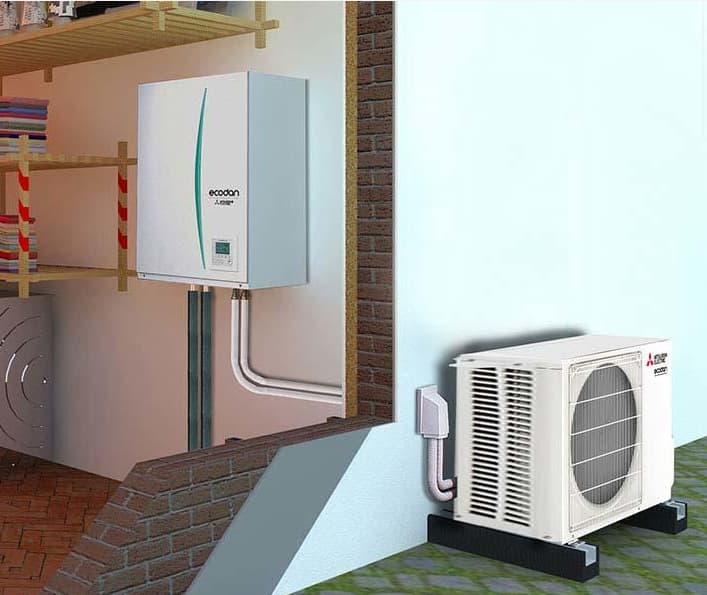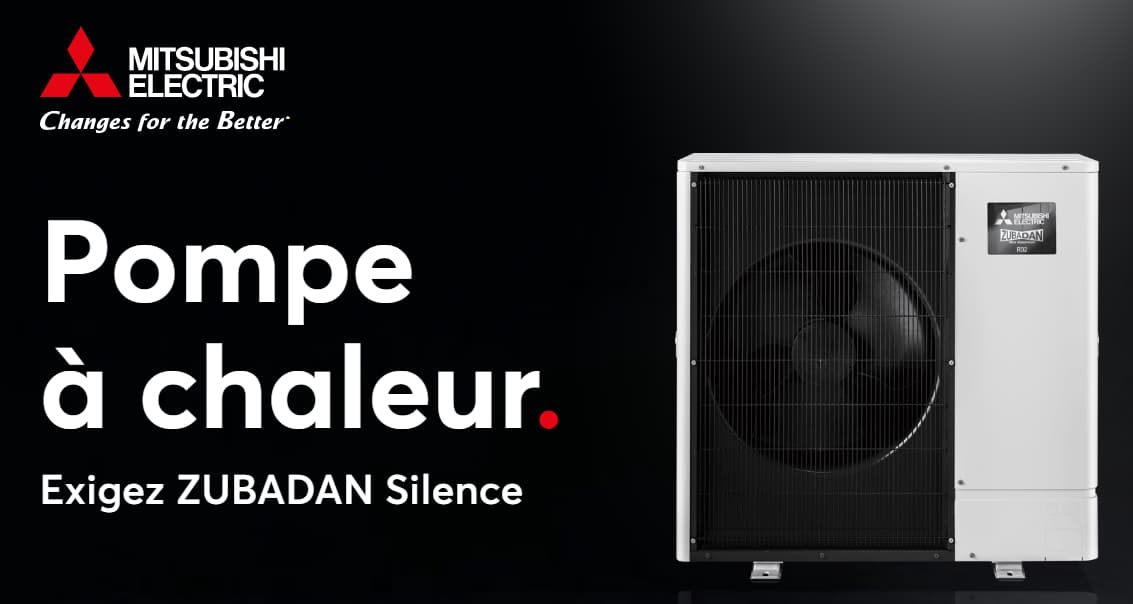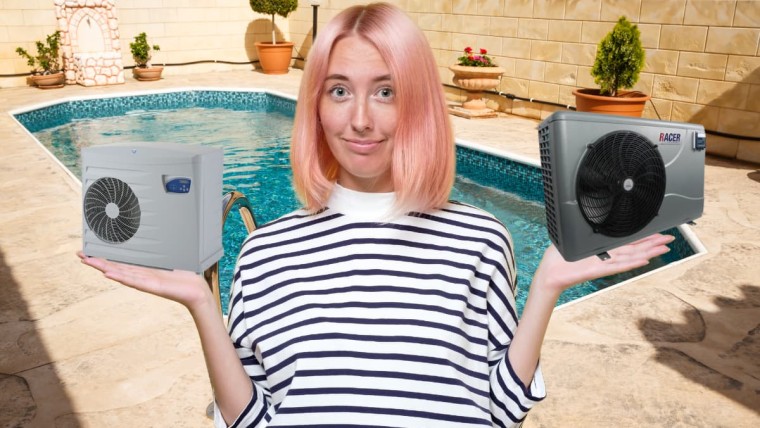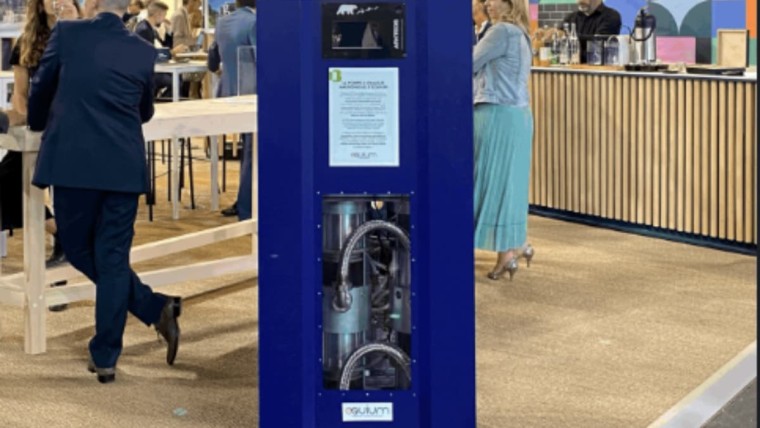Regularly ranked in the top 5 heat pump brands in terms of sales volume in France, Mitsubishi Electric is a safe bet that perpetuates the Japanese know-how in heating and air conditioning.
While the brand is not necessarily the best in terms of depth of range, it offers a reasonable choice of air-to-air and air-to-water heat pumps (AHPs), with an option for each configuration (sizing, power, energy performance, home automation features, cooling, domestic hot water, etc.).
In this practical guide, the editors detail everything you need to know about Mitsubishi Electric air-to-air and air-to-water heat pumps.
Once upon a time... Mitsubishi
Founded in 1870 by Iwasaki Yataro, a schoolteacher by training, the Mitsubishi Group initially engaged in shipping and mining.
Towards the end of the 19the In the 19th century, the group launched a vast diversification policy, investing in bancassurance, automobile manufacturing (Mitsubishi Motors), nuclear energy, the chemical industry, electrical and electronic components and equipment, cameras (with the Nikon brand), and freight logistics (with the NYK Line brand).
In the aftermath of World War II, Mitsubishi was divided into a large number of small companies during the American occupation of Japan.
However, these companies regrouped in the mid-1950s, and the re-formed group participated in the impressive growth of the Japanese economy in the 1960s. Today, Mitsubishi is a group of autonomous Japanese multinationals that operate in many different industries.
The four main companies of the group are MUFG Bank (Japan's largest bank), Mitsubishi Corporation (various trading activities), Mitsubishi Heavy Industries and Mitsubishi Electric. The latter company produces Mitsubishi air-to-air and air-to-water heat pumps.
Presentation of the Mitsubishi heat pump
In the heat pump industry, Mitsubishi is considered more of a premium brand, with reliable and efficient heat pumps.

The Japanese company has been an industry leader since the launch of its Heating, Ventilation and Air Conditioning (HVAC) division in 1980, and even had the luxury of inventing the first ductless product in the United States with the M-Series, which includes indoor and outdoor ductless heat pump units for residential use.
The Japanese brand currently offers a slightly smaller range of heat pumps than competitors such as Atlantic or DaikinWe're satisfied with air-to-air, air-to-water and reversible heat pumps.
The brand is therefore not positioned on hybrid heat pumps and geothermal heat pumps.
However, the price range is wide enough to allow everyone to buy according to their means, with options that can be adapted to their needs: ducted or ductless systems, indoor units (wall-mounted, ceiling-mounted cassettes, floor-mounted, treatment unit with horizontal ducting, etc.), outdoor units, single-zone and multi-zone systems, etc.
Without further ado, let's start this practical guide with The advantages and disadvantages of Mitsubishi air-to-air and air-to-water heat pumps. Keep in mind that performance, reliability and value for money may differ from one model to another. These are general observations and are shared by a large part of the Mitsubishi PACs.
The advantages of the Mitsubishi heat pump
As you'll see, Mitsubishi heat pumps have a lot to offer: patented "Inverter" technology, power supply, reduced carbon footprint, pretty good cooling function, built-in energy control system, etc.
Synthesis :
- Mitsubishi heat pumps are equipped with a brand-patented compression technology (" Inverter "). The heat pump maintains the desired temperature with precision and consistency in one or more rooms. When the need for heating increases, Mitsubishi heat pumps equipped with Inverter "This is not the case with conventional heating technologies, which generally operate with a fixed speed compressor (on-off type). This is not the case with conventional heating technologies, which generally operate with a fixed speed compressor (on-off type).
- Mitsubishi heat pumps run on electricity. If you have the ability to feed your CAP with your own solar panelsYou multiply your savings and do something for the planet without compromising your comfort.
- On average, Mitsubishi heat pumps can reduce your carbon footprint by 44 % ;
- During the warmer months, some Mitsubishi heat pumps can act as (good) air conditioners. Instead of drawing heat from the outside air, they extract it from the inside, lowering the temperature in your home. While several brands offer this feature, Mitsubishi heat pumps seem to perform better than average on cooling.
- The best Mitsubishi heat pumps (such as the R744: CO2 heat pump) have a energy control system... an important feature in a difficult energy situation.
- Mitsubishi heat pumps operate on a wide range of ambient temperatures (between -28° C and +35° C)
- You will appreciate the low noise level of Mitsubishi heat pumps. The Ecodan R744 is the quietest model in its category (only 53 dBA)... but this does not exempt you from taking into account the proximity of the neighborhood to avoid tensions.
The disadvantages of the Mitsubishi heat pump
Mitsubishi heat pumps have a few drawbacks, especially for people who live in areas with particularly harsh winters.
Synthesis :
- The fact that Mitsubishi heat pumps are powered by electricity can be problematic, especially in the current economic climate where kWh prices are at record highs.
- Below a certain temperature, usually -15° C or -20° C depending on the model, Mitsubishi heat pumps may have trouble extracting enough heat from the outside air, but this is a limitation common to most heat pumps, regardless of brand. If you live in an area that experiences particularly harsh winters, you will likely need a backup heating system. That's where hybrid heat pumps come in handy, as they switch to gas in the winter. Unfortunately, Mitsubishi does not offer one.
The two main families of Mitsubishi heat pumps
Like the majority of the heat pump industry, Mitsubishi offers air-to-air and air-to-water heat pumps.
#1 Mitsubishi air-to-air heat pumps
The air-to-air heat pump is a heating system that works on the principle of aerothermy. It captures the heat calories from the outside air (through the outdoor unit) and transmits them to a refrigerant that is sent to the indoor unit of the heat pump. The latter will diffuse these calories within the dwelling via splits or fan coil units. This ingenious system has several advantages:
- From savings substantial, dividing the heating bill by two or even three;
- ReversibleWith a relatively satisfactory cooling performance (especially with a good Mitsubishi heat pump);
- Does not require not a central heating system (unlike the air-water heat pump, as we will see below);
- Quick and easy installation;
- Renewable energy.
On the downside, the air-to-air heat pump does not produce hot water. Some models are noisy and can cause neighborhood problems. Finally, the air-to-air heat pump is not eligible for certain financial aid in France.
Mitsubishi offers a wide range of air-to-air heat pumps:
- Wall-mounted mono-split air-to-air heat pump R32 Hyper Heating (Mural Ultimate +, Mural Compact +, Mural Design Premium and Mural Design de Luxe);
- Console air-to-air heat pump : R32 Inverter de Luxe, R32 Hyper Heating Console MFZ ;
- Single-split ductable air-to-air heat pump R32 Inverter mono-split, R32 compact and R32 Power Inverter Premium;
- Multi-split air-to-air heat pump exterior and interior (several R32 models).
#2 Mitsubishi air-to-water heat pumps
The air-water heat pump is also an efficient, economical and ecological heating system. It captures the heat from the air near the home via the outdoor unit and transports it via a refrigerant that produces heat by compression and condensation. The heat is then sent to a heating emitter (radiator in particular) and eventually to water points to produce domestic hot water (depending on the model). There are several advantages:
- The equipment adapts to the existing heating system ;
- High yield;
- Long life span to very long (more than 15 years);
- Savings substantial energy savings (up to €1,000 per year);
- Uses energy renewable and non-polluting.
In regions with difficult winters (below -5° C), the air-to-water heat pump should be coupled with a supplementary heater. Mitsubishi's Ecodan range of air-to-water heat pumps is a reference in the industry. Reliable, scalable and efficient, these heat pumps offer interesting home automation features and are Keymark certified.
Price of a Mitsubishi heat pump
The price of a Mitsubishi air-to-air heat pump varies between €5,000 and €11,000 according to the Coefficient of Performance (CoP), i.e. the number of kWh of heat produced for 1 kWh of electricity consumed, the heating capacity, the type of regulation, etc.
The price of a Mitsubishi air-to-water heat pump ranges from €10,000 to €16,000 if it also produces domestic hot water, and from €10,000 to €15,000 if it does not produce domestic hot water.
Attention As a private individual, you are strongly advised to buy your Mitsubishi heat pump from a professional installer. The installer usually has preferential rates and will carry out the installation. Installers are reluctant to install heat pumps that they have not sold, and tend to overcharge for labour in this case. The price of installation varies from one RGE craftsman to another, with a range of between €1,500 and €3,000.
The following table summarizes the prices of the best-selling R32 air-to-air and air-to-water heat pump models from Mitsubishi in France. For the sake of convenience, we present here averages by category. Prices are likely to increase depending on the rooms to be heated (and cooled) and the surface area of the house.
| Range | Type | Average price |
| Wall-mounted heat pump | Air-air | From 1 200 € onwards |
| Console heat pump | Air-air | 3 000 € on average |
| Ducted heat pump | Air-air | From 2 500 € onwards |
| Air only heat pump | Air-water | From € 6,000 |
| Air + hot water heat pump | Air-water | Starting at 9 000 €. |
| Heat pump to heat and cool the air | Air-water | From €6,500 |
| Heat pump for heating and cooling air + domestic hot water | Air-water | From 10 200 € onwards |
Where to buy a Mitsubishi heat pump?
In France, you can buy some models of Mitsubishi air-to-air and air-to-water heat pumps in specialized supermarkets and online specialists such as ManoMano, Leroy Merlin, Espace Aubade, Cdiscount ...
As explained above, we do not advise you to buy the equipment by yourself, especially since if you do not have a certificate of competence to handle refrigerants, you will be refused the purchase unless you give a signed paper attesting that the equipment will be installed by a company with this certificate, with the certificate number.
What kind of financial aid is available for the purchase of a Mitsubishi heat pump?
The state offers several financial aids to households who wish to replace their heating system with a heat pump, but also to replace an old heat pump with a more energy efficient model. Please note Only air-to-water or water-to-water heat pumps are eligible (air-to-air heat pumps are considered too energy intensive, except for a possible CEE bonus depending on the performance of the heat pump).
Here's what you need to know about financing assistance for the purchase of a heat pump in France:
- MyRenovationPrime. Granted by the Agence Nationale de l'Habitant, it is conditioned by the resources of the household. Its amount varies between 3 000 € and 5 000 €.
- The boiler conversion premium (CEE bonus). This financial aid applies to the replacement of an old oil, coal or gas boiler (excluding condensation) by an air-water heat pump. This bonus is open to all households, without conditions. It takes the form of a check, a transfer or a voucher of between €2,500 and €4,000.
- The zero interest eco-loan (eco-PTZ). As its name indicates, it is an interest-free loan repayable over 20 years (maximum) to finance energy work (up to 50 000 €). The eco-PTZ is granted subject to acceptance of your file by the bank.
- Local government assistance. Ask your department and/or region for information on assistance for the purchase and installation of a heat pump.
Reviews of Mitsubishi heat pumps
What do consumers think of Mitsubishi heat pumps? We've compiled user reviews to help you make an informed choice.
Miclaf82, forum member How to walk.comexplains that " Mitsubishi has a good reputation in general, with good COPs under standard measurement conditions ". We confirm this assertion, the Japanese brand being systematically in the top 5 on air-to-air and air-to-water heat pumps
For his part, Davl from the same forum explains: " Several installers have made different proposals, the most suitable (value for money) seems to be a Mitsubishi Ecodan 12 kW heat pump with 180 liter hot water tank without buffer tank ". Indeed, many serious installers recommend Mitsubishi for obvious reasons of reliability, energy performance and value for money. Moreover, Lolo13 was dithyrambic on this product: " Frankly extraordinary... a plane, this material ".
Same sound of bell on the side of Zizou10, regular of the forum: " I just had a Mitsubishi air-to-air heat pump installed: two outdoor units + 6 splits. Result: very satisfied! ". Let's move on to the other side of the Atlantic. The specialized site Energy Sage estimates that " Mitsubishi Electric is a reference brand for heat pumps that offers several models on residential heat pumps ". As you can see, the returns are excellent if you choose the right model... which brings us to the next point.
Our tips for choosing your Mitsubishi heat pump
Buying a heat pump (and related equipment) is a real investment. If you make the right choice, you can save up to 75 % on your heating bill for many, many years. Here are some basic tips to avoid going off track:
- Air-to-air or air-to-water heat pump ? Each model has its own advantages, although air-to-water heat pumps have a major advantage, since they are eligible for financial aid from the State and local authorities. If you live in a hot region, which experiences scorching summers, it may be worthwhile to opt for an air-to-air heat pump to cool you down.
- Power and size are the criteria that have the greatest impact on price. The objective here is to avoid oversizing (additional cost for purchase and use) and undersizing (insufficient performance). Unless you have knowledge in the field, only a professional will be able to carry out a thermal study to advise you according to the surface (or volume) of your home, the number of rooms, the climate of your region, the heating equipment already installed and your budget.
- The noise of the CAP. This point should not be overlooked to avoid tensions with the neighborhood. Mitsubishi offers models that are not very noisy (53 dBA for the R744 or 56 dBA with the Ecodan Zubadan Silence 8).
- The guarantee. The warranty is usually for two years with Mitsubishi, but some dealers offer extended warranties on the compressor, a part that sometimes wears out faster than expected. Take the time to read the contract to avoid unpleasant surprises. Note: the extended warranty on the compressor is usually associated with a maintenance contract.
What are the alternatives to the Mitsubishi heat pump?
Although Mitsubishi's Ecodan and Zubadan heat pump ranges are regularly among the best-sellers in France, they are strongly rivalled by :
- The Altherma heat pump from Daikin ;
- Hitachi heat pumps (especially since the partnership with Somfy for home automation);
- Toshiba heat pumps;
- The range of heat pumps Génia Hybrid Universel from Saunier Duval ;
- The heat pumps made in France of Atlantic.
Related articles to read also:
TOP 20 Best air-to-water heat pumps
Reviews of the Toshiba heat pump and air conditioning brand
Daikin heat pump and air conditioning brand review
Review of Japanese heat pump models

Julien G.
Juliena mechanical engineering graduate and specialist in climate engineering since 2009, has become a writer specializing in renewable energies, with expertise in heat pumps and photovoltaic solar panels for individual housing.
See all articles by this author






